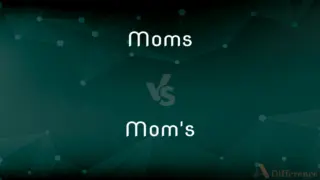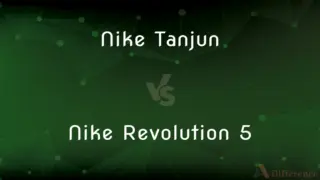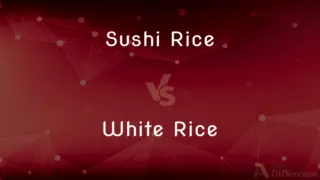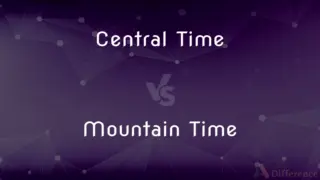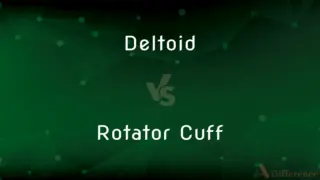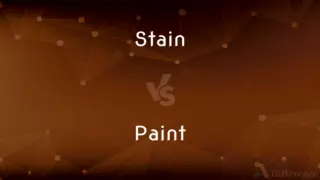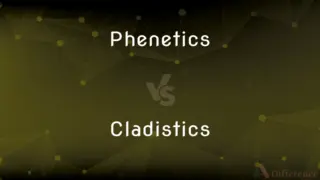Short Term Memory vs. Long Term Memory — What's the Difference?
Edited by Tayyaba Rehman — By Fiza Rafique — Published on January 18, 2024
Short Term Memory holds information briefly for immediate tasks. Long Term Memory stores information for prolonged periods or life.
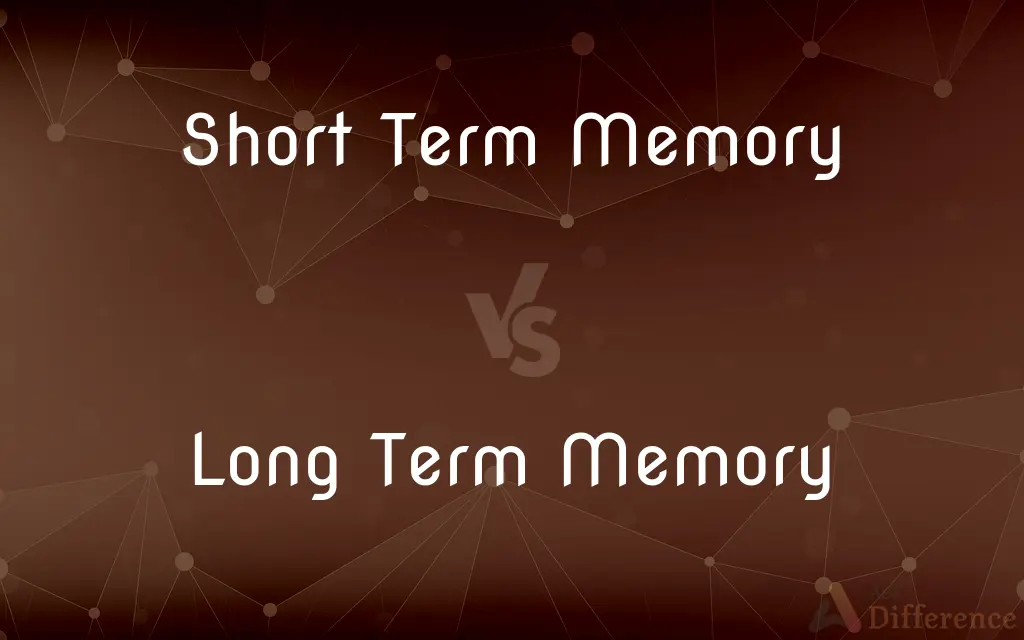
Difference Between Short Term Memory and Long Term Memory
Table of Contents
ADVERTISEMENT
Key Differences
Short Term Memory and Long Term Memory serve as integral components of the human memory system. While Short Term Memory acts as a temporary storage space for processing immediate tasks, Long Term Memory is a vast storage that holds memories spanning from minutes ago to decades past.
The capacity and duration differ when contrasting Short Term Memory and Long Term Memory. Short Term Memory can hold about 7 items for roughly 20-30 seconds without rehearsal. In contrast, Long Term Memory has a virtually unlimited capacity, storing information that can be recalled even after many years.
Retrieval processes are distinct for Short Term Memory and Long Term Memory. Items in Short Term Memory are readily accessible, as they're actively being thought about. However, recalling details from Long Term Memory might require cues or triggers, especially for memories stored over extended periods.
The encoding processes for Short Term Memory and Long Term Memory vary as well. While Short Term Memory relies on acoustic or visual coding, Long Term Memory often requires deeper processing, such as semantic encoding, making connections, or understanding meaning.
It's also worth noting the vulnerabilities of Short Term Memory and Long Term Memory. Short Term Memory can be easily disrupted by distractions or the introduction of new information. On the other hand, some Long Term Memories might become less accessible or detailed over time, but they're generally more stable.
ADVERTISEMENT
Comparison Chart
Capacity
About 7 items
Virtually unlimited
Duration
20-30 seconds without rehearsal
From minutes to a lifetime
Encoding Process
Acoustic or visual
Deeper processing like semantic encoding
Vulnerability
Easily disrupted by distractions
More stable, but can become less detailed over time
Retrieval Process
Readily accessible
May require cues or triggers
Compare with Definitions
Short Term Memory
A cognitive system for active processing.
The calculation I did in my head relied on my Short Term Memory.
Long Term Memory
The vast reservoir of knowledge and experiences.
Learning a language involves transferring words and grammar rules to Long Term Memory.
Short Term Memory
Memory that's susceptible to distractions.
A sudden noise made me lose track of what I was counting, demonstrating the fragility of Short Term Memory.
Long Term Memory
Memories that can be recalled after extended periods.
I still remember my college graduation thanks to my Long Term Memory.
Short Term Memory
The initial stage of memory storage.
Before transitioning to Long Term Memory, information first passes through Short Term Memory.
Long Term Memory
A stable form of memory storage.
Despite the years, significant events remain vivid in Long Term Memory.
Short Term Memory
A temporary storage for immediate tasks.
I used my Short Term Memory to remember the phone number just long enough to dial it.
Long Term Memory
A memory storage that spans from minutes to a lifetime.
My childhood memories reside in my Long Term Memory.
Short Term Memory
Memory system that holds limited information.
While taking a test, students often rely on their Short Term Memory for recently studied material.
Long Term Memory
Memory that may require cues for retrieval.
Seeing an old photograph can trigger memories stored in Long Term Memory.
Common Curiosities
How is Long Term Memory organized?
It's believed to be organized semantically, based on meanings and concepts.
Can information skip Short Term Memory and go directly to Long Term Memory?
Typically, information goes through Short Term Memory, but intense emotions might lead to direct long-term encoding.
Are there different types of Long Term Memory?
Yes, including declarative (facts/events) and procedural (skills/habits).
What's the relationship between Short Term Memory and working memory?
Working memory is an extension of Short Term Memory, involved in processing and manipulating information.
How does stress affect Long Term Memory?
While short-term stress might enhance memory formation, chronic stress can impair it.
How can one enhance Long Term Memory retention?
Techniques like spaced repetition and elaborative rehearsal can aid retention.
Can Short Term Memory decline with age?
Yes, aging can impact the efficiency of Short Term Memory.
What affects Short Term Memory capacity?
Capacity can be influenced by attention, distractions, and individual differences.
Is it possible to train and improve Short Term Memory?
Yes, through practices like memory games or chunking information.
Why do some Long Term Memories fade?
Over time, without retrieval or rehearsal, some memories might decay.
What role does attention play in Short Term Memory?
Paying attention is crucial for encoding information into Short Term Memory.
Can trauma impact Long Term Memory?
Traumatic events can lead to strong memories or, in some cases, memory suppression.
How does sleep affect Short Term Memory?
Sleep can help consolidate information from Short Term to Long Term Memory.
Why do certain smells or songs trigger specific Long Term Memories?
Sensory experiences can be strongly linked to memories, acting as cues for retrieval.
Are there disorders related to Short Term Memory loss?
Conditions like Alzheimer's or amnesia can impact Short Term Memory.
Share Your Discovery

Previous Comparison
Nachos vs. Tortilla Chips
Next Comparison
Might Have vs. May HaveAuthor Spotlight
Written by
Fiza RafiqueFiza Rafique is a skilled content writer at AskDifference.com, where she meticulously refines and enhances written pieces. Drawing from her vast editorial expertise, Fiza ensures clarity, accuracy, and precision in every article. Passionate about language, she continually seeks to elevate the quality of content for readers worldwide.
Edited by
Tayyaba RehmanTayyaba Rehman is a distinguished writer, currently serving as a primary contributor to askdifference.com. As a researcher in semantics and etymology, Tayyaba's passion for the complexity of languages and their distinctions has found a perfect home on the platform. Tayyaba delves into the intricacies of language, distinguishing between commonly confused words and phrases, thereby providing clarity for readers worldwide.















